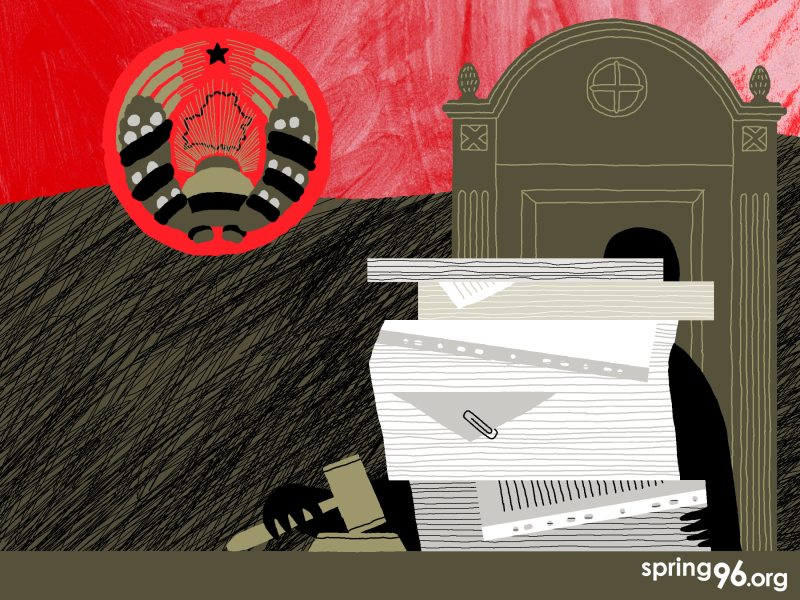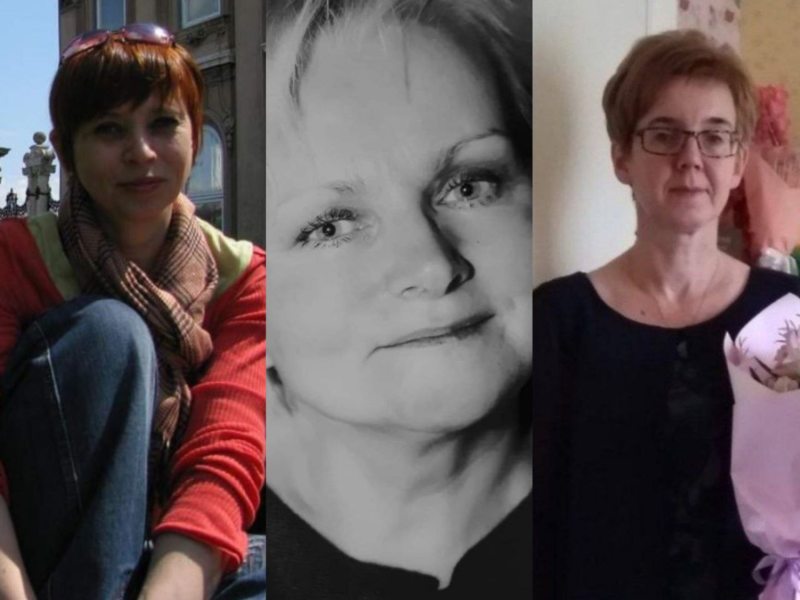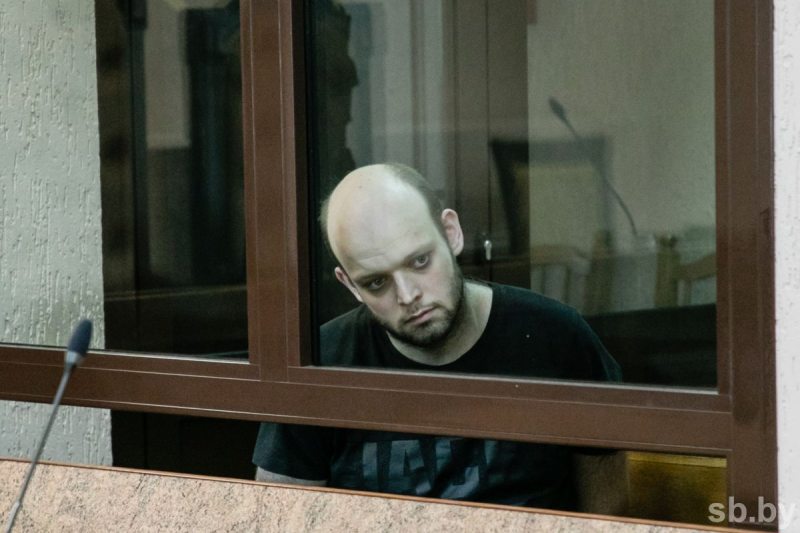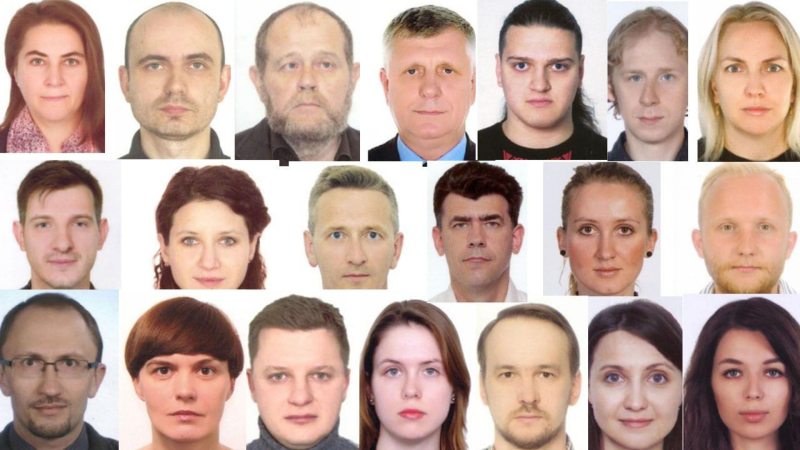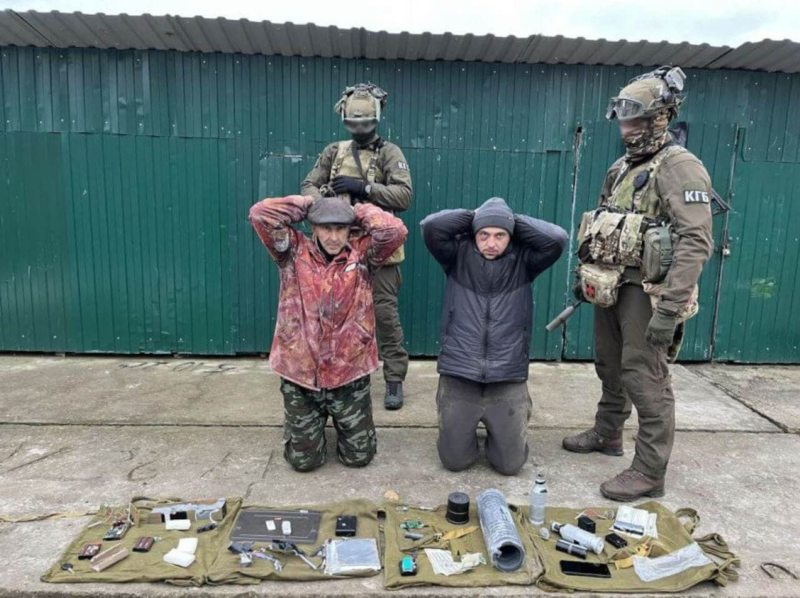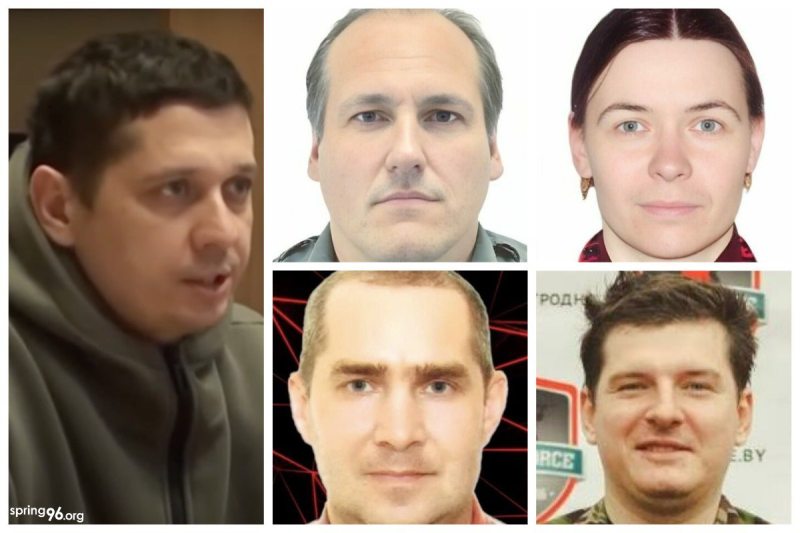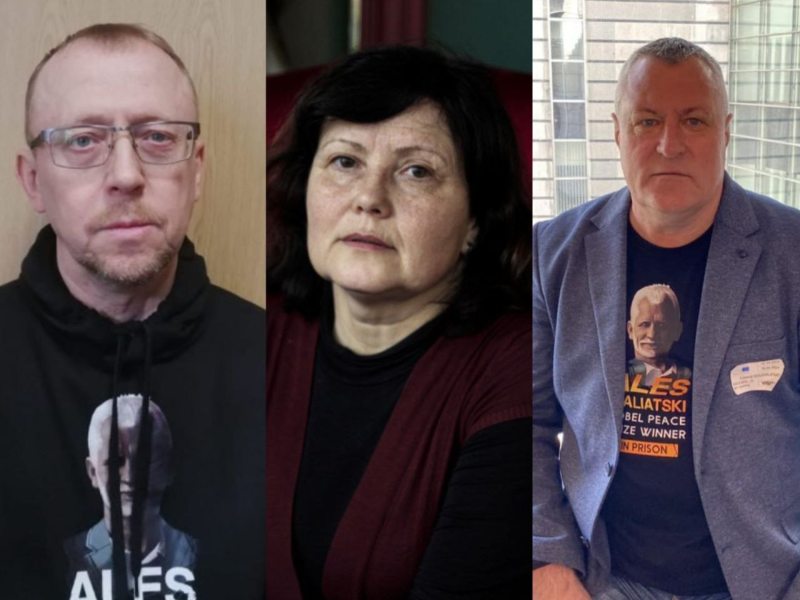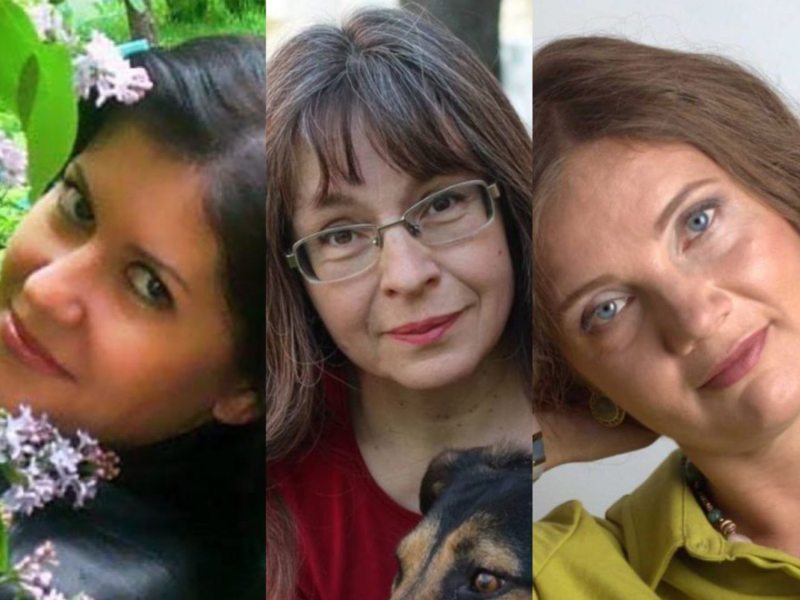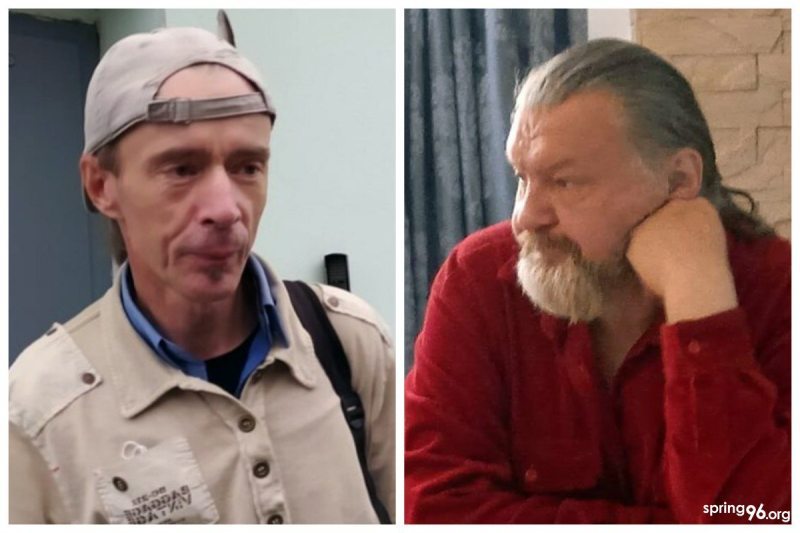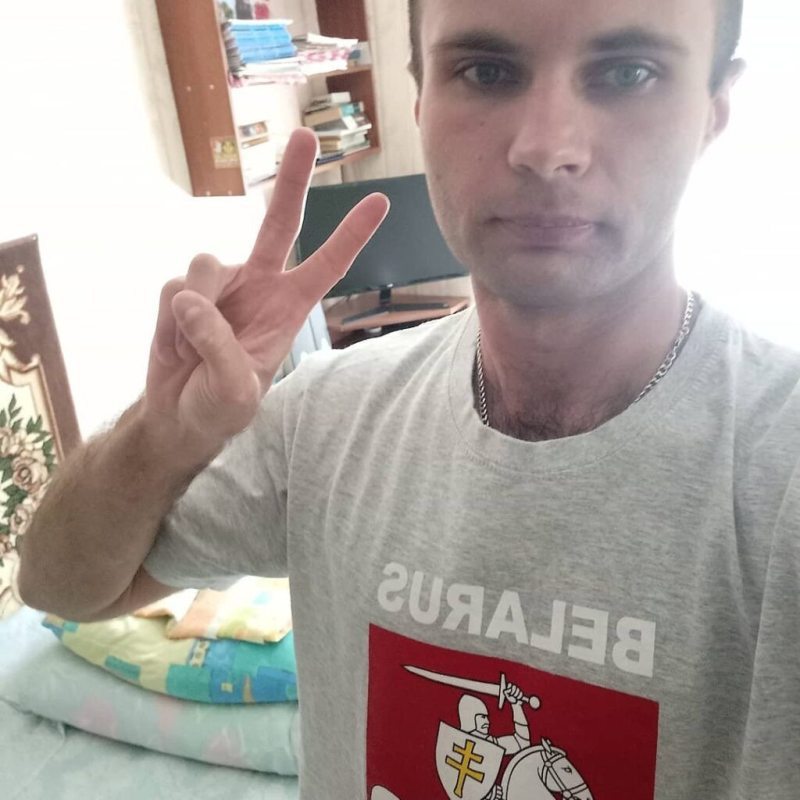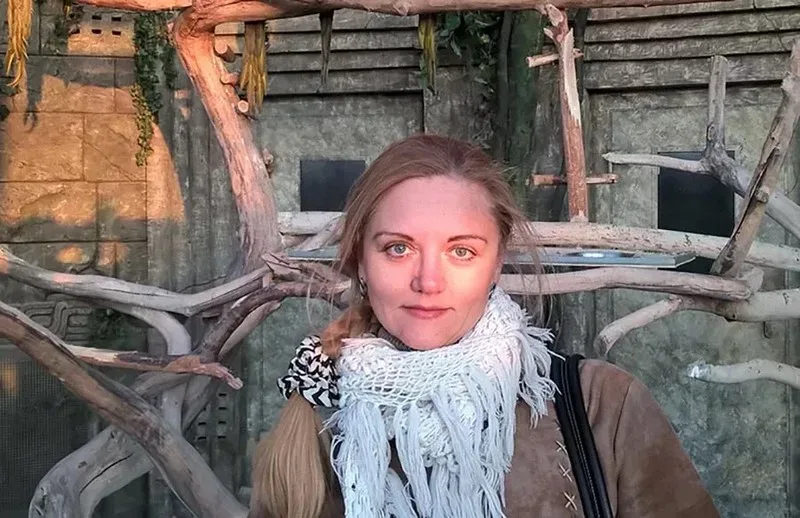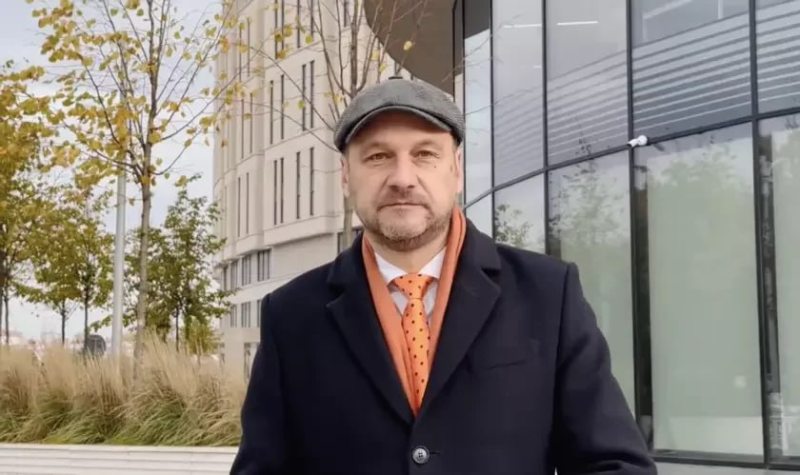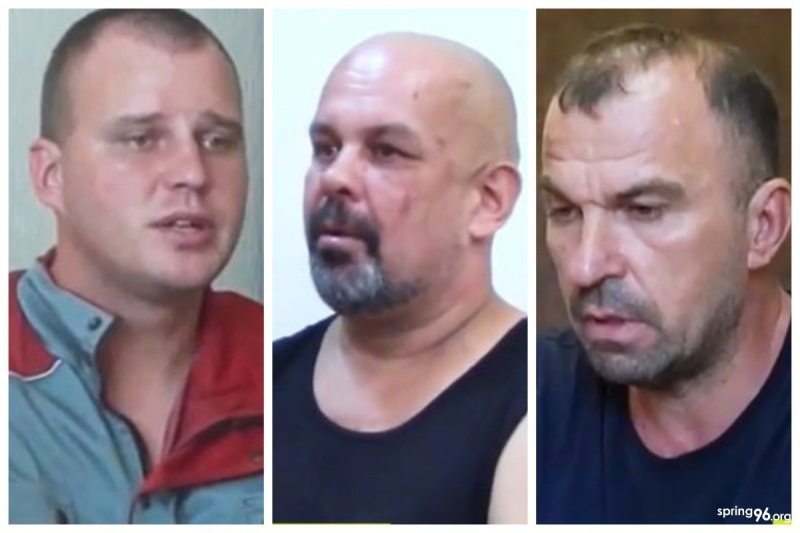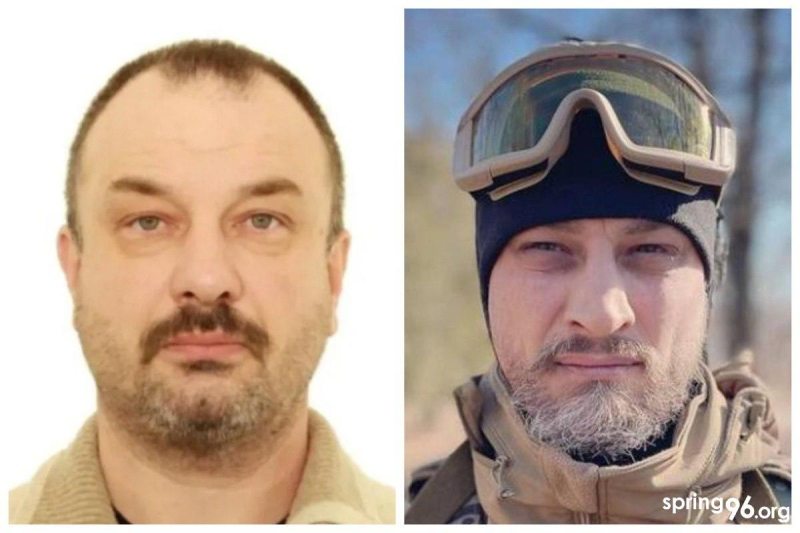At least 1,721 people convicted in 2024: the results of criminal prosecution
At least 1,721 people were convicted in political criminal cases in Belarus in 2024. Among them 1,241 are men (72.1%), 480 (27.9%) are women. Among the total number of convicted persons there are 21 persons of retirement age: 14 women and 7 men. The practice of trials in absentia continues in our country this year. Special proceedings have been initiated for 144 people. The most political trials were held in Minsk, the least - in Mahiliou and Vitsebsk regions. The most common type of punishment for politically motivated criminal articles is imprisonment. In total, 55.4% of Belarusians were sentenced to imprisonment. And the most popular reason for politically motivated criminal trials remains participation in protests - 1,019 people were convicted under Article 342 of the Criminal Code.
In numbers and stories we tell about the criminalization of Belarusians in 2024.
Types of punishments
The most common type of punishment in criminal cases is imprisonment. This year, 55.4% of the prisoners were sentenced to penal colonies and prisons of all types of security. The second most common type of punishment is restricted freedom with or without transfer to an open correctional facility. In total, 38.7% were sentenced to "domashniaya khimiya". 4.3% were sentenced to "khimiya" with transfer to an open correctional facility. Arrest was given to 0.6%, fine - 0.3%. 0.7% were sentenced to compulsory treatment.
Geography of convictions
The largest nimber of politically motivated criminal trials took place in Minsk - 51.4%. Brest region ranks second in the number of politically motivated criminal convictions - 18%. The least number of politically motivated criminal convictions took place in Mahiliou and Vitsebsk regions - 4.8% and 3%, respectively.
Most common criminal charges
Belarusians are still being tried en masse for their participation in the protests four years ago. This is the most popular reason for political trials - 1,019 people were convicted under the "people's" Article 342 in 2024. Defamation articles, under which people are tried for comments about Lukashenka, law enforcement officers and government officials, are also widespread. Thus, 245 people were convicted of "insulting Lukashenka" (Article 368 of the Criminal Code). 135 people were convicted of "insulting a government official" (Article 369 of the Criminal Code), while 186 people were convicted of "inciting hatred" (Article 130 of the Criminal Code). 75 people were convicted of "calling for sanctions" (Article 361 of the Criminal Code), and 109 people were convicted of "promoting extremist activities" (Article 361-4 of the Criminal Code).
High-profile criminal cases
This year, doctors and comedians, military and human rights activists, Ukrainian citizens and political analysts, journalists and illustrators were tried in political criminal cases. Judicial sentences were handed down for sending food to the families of political prisoners and for sending letters to prisoners. Criminal pressure on political prisoners Increased and for the first time a death row prisoner was pardoned. Below we recall political criminal cases in 2024.
Letters, money transfers, food parcels: persecution for solidarity with political prisoners
At the end of January 2024 there was a massive wave of persecution of families of political prisoners in Belarus for receiving food parcels under the initiative of IneedHelpBY, which was recognized by the authorities as an "extremist formation". At least 287 people were searched, interrogated and detained. The search warrants included criminal articles for "financing extremist activities" (Article 361-2 of the Criminal Code) and "promoting extremist activities" (Article 361-4 of the Criminal Code). Those who sent small money transfers or letters of support to political prisoners were also prosecuted for solidarity. For example, three residents of Zhodzina were arrested in November and charged with "creation of an extremist formation or participation in it" (Article 361-1 of the Criminal Code). According to the KGB, they were involved in the "letter.bel" initiative to write letters to political prisoners.
To date, at least 37 people have been convicted in the case of solidarity with political prisoners, including only one man, the rest are women, most of them over 50 years old. According to the prosecution, they allegedly took information about political prisoners from the pages of initiatives recognized as "extremist formations".
Thus, 55-year-old librarian from Brest Iryna Pahadayeva was detained in May 2024 and charged with "promoting extremist activities" (Parts 1 and 2 of Article 361-4 of the Criminal Code) for the fact that the woman sent money to political prisoners in pre-trial detention centers. In total, Iryna transferred 188 rubles. In July she was sentenced to three years' imprisonment by the Brest Regional Court.
Political prisoner Aksana Liapko, 50, was detained in January 2024 during a law enforcement raid on relatives of political prisoners for receiving food parcels from the IneedHelpBY initiative. Initially, the political prisoner was accused of "financing extremist activities", but later the charge was changed to "assisting extremist activities". In September the Hrodna Regional Court sentenced Aksana to three years' imprisonment.
The mother of former political prisoner Volha Takarchuk, 64-year-old Iryna, was detained in January 2024 in connection with food parcels for the families of political prisoners. The woman was taken to the KGB for interrogation, after which she was charged under Article 361-4 (assisting extremist activities). In August 2024, Iryna was sentenced by the Minsk City Court to three years' imprisonment.
The only one pardoned among death row inmates
In July 2024 the media reported that on June 24 in the Minsk Regional Court the military doctor of the Red Cross, German citizen Rico Krieger was sentenced to death by firing squad. The German was convicted on six serious criminal articles, including "act of terrorism" (Part 3 of Article 289 of the Criminal Code) and "agent activity" (Article 358-1 of the Criminal Code).
According to Viasna, Rico Krieger was found guilty of "arranging an explosion in order to influence decision-making by authorities, intimidate the population, destabilize public order (an act of terrorism) committed by a person who had previously committed a crime under Part 4 of Article 295 of the Criminal Code, as an organized group, that is, committing a crime under Part 3 of Article 289 of the Criminal Code". On the basis of it, Krieger was sentenced to an exceptional measure of punishment in the form of the death penalty (execution by firing squad).
It is known that on July 30, Rico Krieger was pardoned by Lukashenka. On August 1, he was released as part of the prisoner exchange that took place between the United States, Russia, Germany and Belarus.
206.5 years in prison in total: the case of "Tsikhanouskaya's analysts"
The defendants in the case of the so-called "analysts of Sviatlana Tsikhanouskaya" were 20 people: Aliaksandr Dabravolski, Ryhor Astapenia, Filip Bikanau, Yury Drakakhrust, Andrei Kazakevich, Hanna Krasulina, Yauhen Kryzhanouski, Dzianis Kuchynski, Veranika Laputska, Aliaksandr Lahvinets, Hanna Liubakova, Vasil Navumau, Maryia Rohava, Piotr Rudkouski, Alesia Rudnik, Natallia Rabava, Pavel Usau, Tatsiana Chulitskaya, Aliaksandr Shlyk, Katsiaryna Shmatsina. The case was considered by Judge Uladzimir Areshka.
According to the case materials, all of them were accused of "extremist crimes" in connection with Lukashenka's election campaign and in the post-election period.
On July 1, the Minsk Regional Court sentenced all the defendants in absentia to 10 - 11 years' imprisonment under four criminal articles.
Father and son from Ukraine get 20 years in prison as "saboteurs of the SBU"
In Lelchitsy district in February 2024 the regime of "anti-terrorist operation" was declared, after which the KGB reported about the arrest of "terrorists", allegedly sent by the SBU to commit sabotage in Belarus and the Russian Federation. According to the propagandists, Ukrainian citizens Siarhei and Pavel Kabarchuk and Brest resident Vital Vlasiuk were detained. They were allegedly found with explosives intended for terrorist acts in Russia and Belarus.
In October, the father and son were convicted by the Homel Regional Court under four criminal articles, including "an act of terrorism" (Article 289 of the Criminal Code) and "agent activity" (Article 358-1 of the Criminal Code). Judge Yauhen Sharshniou sentenced Siarhei and Pavel to 20 years in prison each.
Case of the Machulishchy airfield explosion: up to 25 years in prison
In February 2023, explosions occurred at a military airfield in Machulishchy, damaging a valuable DRLV a-50 long-range reconnaissance aircraft used to guide Russian missiles to targets in Ukraine.
According to officials and propagandists, the perpetrator of the sabotage, Mykola Shvets, was released on exchange with Ukraine in June this year. Apart from Mykola, Maksim Lapatsin, Andriy Stsiapurka, Aleh Sychou and his wife Anastasiya Pilko, and Dzianis Sakalou are on trial. All of them allegedly helped Shvets in the case, but did not know exactly who he was.
Most of the defendants were tried in absentia: Mykola Shvets, Aliaksandr Azarau, Ala Yatsuta, Vital Yakutsik, Yauheniya Tachytskaya, Mikhail Dziomin, and Siarhei Loparau.
In August this year , the Minsk City Court convicted all the defendants under 11 articles of the Criminal Code, including "an act of terrorism" (Part 3 of Article 289 of the Criminal Code) and "treason against the state" (Part 1 of Article 356 of the Criminal Code). Human rights activists do not know all the verdicts in the case. Mykola Shvets, Aliaksandr Azarau and Vital Yakutsik were sentenced in absentia to 25 years' imprisonment.
Three human rights defenders sentenced to 13 years in prison for "promoting extremist activities"
Over the past year, the authorities continued to harass human rights defenders, even those who have been living abroad for a long time. For example, three human rights defenders were convicted in absentia on criminal charges under the guise of fighting "extremist activities".
Leanid Sudalenka, a well-known lawyer and former head of the Homiel branch of the Viasna Human Rights Center, is one of the first human rights defenders to be detained in a criminal case after the 2020 presidential elections. Leanid was detained in January 2021 on his way to the office and charged under Article 342 of the Criminal Code (organization and preparation of actions that grossly violate public order, or active participation in them). And in September of the same year, he was sentenced to three years in prison.
After serving his full sentence, the former political prisoner left Belarus and continued his human rights activities outside the country. Immediately after his release, Leanid stated that he would focus his activities on the speedy release of political prisoners. However, in November 2023, a new criminal case was brought against the human rights defender in absentia for "promoting extremist activities" (Parts 1 and 2 of Article 361-4 of the Criminal Code). Leanid tried to contact the investigator and the state-appointed lawyer, but received no response.
In June 2024, in the Homiel Regional Court, Leanid Sudalenka was sentenced in absentia to five years in a medium-security penal colony under Parts 1 and 2 of Article 361-4 of the Criminal Code.
In the spring of this year, a special proceeding was initiated against human rights defender Alena Masliukova from Homiel. According to the human rights defender, she did not receive any information from the authorities about the essence of the charges.
In the Homiel Regional Court in the fall of 2024, Alena Masliukova was sentenced to three years in a general-security penal colony for "promoting extremist activities" (Parts 1 and 2 of Article 361-4 of the Criminal Code). The essence of the charge remained unknown even to the human rights activist herself.
Uladzimir Khilmanovich, a human rights defender from Hrodna, was also tried in absentia. He has not lived in Belarus for more than three years. The criminal case against him was opened in the fall of 2023.
In late summer, the Hrodna Regional Court convicted Uladzimir in absentia under two criminal articles: Part 3 of Article 361-1 (participation in an extremist formation) and Parts 1 and 2 of Article 361-4 (assisting extremist activities). Judge Ihar Sobaleu sentenced the human rights activist to five years in a medium-security penal colony.
Criminal prosecution of political prisoners in penal colonies continues
In 2024, the practice of criminal pressure on political prisoners allegedly for "malicious disobedience to the administration of the correctional institution" (Article 411 of the Criminal Code) continues in Belarusian penal colonies and prisons. Some prisoners were tried under this article for the third time in a row.
Palina Sharenda-Panasiuk, a political prisoner, was sentenced in June 2021 to two years' imprisonment under three criminal articles.
After that, she was tried three times under Article 411 of the Criminal Code. The last time - in October 2024 in Rechytski Court. Judge Stanislau Ivaniutsienka sentenced Palina to another year in a penal colony. During her imprisonment the activist's health deteriorated and a chronic disease appeared.
Victoryia Kulsha, the administrator of the chat room "Drivers 97%", was sentenced in June 2021 to two and a half years in a penal colony for participating in a protest. Victoryia, like Palina, has been tried three times for "disobedience to the administration of the correctional institution". She has already been sentenced to another two years in a penal colony. And in February 2024, it became known that a third consecutive criminal case had been opened against Viktoryia.
Political prisoner Volha Mayorava was sentenced in the "Autukhovich case" in the fall of 2022 to 20 years in a penal colony under six articles.
In the spring of 2024, Volha was convicted again under Part 2 of Article 411 (malicious disobedience to the administration of the correctional institution) and sentenced to another year and six months in addition to the 20 years' imprisonment.
He was supposed to be released this summer, but was convicted again
The well-known activist and former leader of the Young Front movement, political prisoner Zmitser Dashkevich, was convicted again this year.
The first time Zmitser was sentenced to one and a half years in a penal colony in the summer of 2022 for participation in a protest under the "people's" article. His wife Nasta, who was pregnant at the time of the verdict, was sentenced to three years of restricted freedom under home confinement under the same criminal article.
The political prisoner was supposed to be released in July 2024. However, a new criminal case was brought against him under Part 1 of Article 342 of the Criminal Code. And during the trial it became known that he was also charged under Part 1 of Article 411 of the Criminal Code. As a result, in September 2024, in Pershamaiski Court of Minsk, Zmitser was sentenced to another year and three months of imprisonment.
Illustrator from Brest sentenced to 6 years in prison for donations to the Kalinouski Regiment
After the war broke out in Ukraine, the political prisoner Natallia Levaya went to Poland, where she worked as a 2D illustrator. And in the winter of 2023 she decided to return to her homeland, where she was arrested.
According to the prosecution's version, in 2021-2022 the political prisoner Natallia Levaya allegedly transferred a total amount of about 1,275 euros to the bank accounts of representatives of "extremist formations", including the Kalinouski Regiment.
In July 2024, in the Brest Regional Court, Natallia was sentenced to six years' imprisonment under three criminal articles.
Aliaksandr Verasovich, 57, was also sentenced for donations to the Kalinouski Regiment and to the BYSOL Solidarity Fund. In April, the Minsk Regional Court sentenced him to six years' imprisonment under two criminal articles: "financing the activities of an extremist group" (Article 361-2) and "financing participation in military actions on the territory of a foreign state" (Part 2 of Article 361-3 of the Criminal Code).
Two Mahiliou journalists were sentenced to imprisonment
Political prisoners Ales Sabaleuski and Yauhen Hlushkou were arrested in the winter of 2023. They were detained for seven months prior to the trial.
Ales is a former Mahiliou blogger and journalist who was arrested several times in 2020. Yauhen worked for local television in the 90s and later worked as a journalist for several city portals.
In the Mahiliou Regional Court in the summer of 2024 the journalists were convicted under two criminal articles: Parts 1 and 3 of Article 361-1 (creation of an extremist formation or participation in it) and Part 1 of Article 361-3 (participation or preparation of a citizen of the Republic of Belarus on the territory of a foreign state in military actions without the authorization of the state). Judge Dzmitry Krenzhyeuski sentenced Ales to four years in a penal colony. Yauhen was sentenced to three years' imprisonment.
Viciebsk doctor sentenced to 4 years in prison for commenting on terrorist attack in Russia
This year in April, during an online stream with the provocateur, doctor Aliaksandr Randarenka and a friend said they were "celebrating" a terrorist attack at Crocus City Hall. At the same time, the men had a flag with a swastika on the table. After that, the man was arrested and severely beaten.
In December in Viciebsk Court Aliaksandr was convicted of "rehabilitating Nazism" (Part 1 of Article 130-1 of the Criminal Code) and "inciting hatred" (Article 130 of the Criminal Code). Judge Yauhen Burunou sentenced Aliaksandr to four years in prison.
A resident of Petrykau sentenced to 10 years in prison under 10 articles
The political prisoner Ivan Sukhamerau graduated from the university in 2017. According to the guy's social networks, approximately since then he started to speak critically about the authorities. The guy was detained in June 2023, allegedly during an illegal crossing of the Belarusian border. Ivan was charged under 10 criminal articles, including "treason against the state", "participation in the activities of a terrorist organization" and "participation in an armed formation or armed conflict on the territory of a foreign state ".
According to the prosecution, Ivan published negative information about Lukashenka in his social networks, as well as calls for sanctions. He joined BYPOL, wanted to become a warrior of the Kalinouski Regiment and donated to the Armed Forces of Ukraine.
In April, the Homiel Regional Court sentenced Ivan to 10 years' imprisonment and a fine of 100 basic units.
Language consultant of Belsat sentenced to 2 years in prison and a huge fine
The political prisoner Anastasiya Matsiash was arrested in the fall of 2023.
According to the verdict, the woman allegedly worked as a language consultant for Polish TVP, to which Belsat belongs, from the summer of 2021 until the fall of 2023. She allegedly provided language consultating, translation and proofreading services.
In April, the Minsk City Court convicted Anastasiya of "participation in an extremist formation" (Part 3 of Article 361-1 of the Criminal Code) for two years in a penal colony.
Leader of liquidated party sentenced to 6 years in prison for "calls for sanctions"
The 50-year-old political prisoner Dzmitry Kuchuk is a former leader of the liquidated Green Party. He was detained in winter near the Russian Embassy in Belarus, when he came to lay flowers in memory of the politician Alexei Navalny, who died in prison.
In the Minsk City Court in December Dzmitry was sentenced to six years in a penal colony for "active participation in actions that grossly violate public order" (Part 1 of Article 342 of the Criminal Code) and "calls for sanctions" (Part 3 of Article 361 of the Criminal Code).
From 11 to 25 years in prison for two Belarusians and a Ukrainian allegedly for "preparing a terrorist act"
In September, all state channels showed a film about the detention of Belarusians Ivan Barodzich, Barys Pukhalski and Ukrainian Ivan Likhalat.
As reported, Barys Pukhalski and Ivan Likhalat allegedly tried to blow up a section of the railroad in Vitsebsk region. The men were charged under several criminal articles, including "attempted act of terrorism", "agent activity", and "treason against the state".
In December, the Minsk City Court sentenced all three to between 11 and 25 years in prison. The exact terms for each are unknown.
Two military officers given heavy sentences for drone attack on OMON base
We are talking about two representatives of the Supratsiu initiative, recognized by the authorities as "terrorist". Pavel Kulazhenka fights as a volunteer in Ukraine, and previously he was an OMON officer. Vital Patsiekhin had previously served in the Belarusian army. He was named as the perpetrator of the attack, which took place in September 2021. According to the investigation, Patsiekhin "with the help of ignorant smugglers" received a drone with a large payload from Ukraine and prepared for the attack for several months.
In December, the Minsk City Court convicted the military men in absentia under six criminal articles, including "an act of terrorism". Judge Mikhail Makarevich sentenced Pavel Kulazhenka to 24 years and Vitali Patsiekhin to 23 years in a penal colony.
Stand-up comedian gets 6 years in prison for jokes about Lukashenka
Belarusian stand-up comedian Slava Kamisaranka was declared wanted in January 2022. For security reasons, the artist had to leave Russia, where he lived for the last few years.
Slava was criminally prosecuted under three articles. He was accused of "slandering Lukashenka" (Article 367 of the Criminal Code), "insulting Lukashenka" (Article 368 of the Criminal Code) and "inciting hatred" (Article 130 of the Criminal Code).
In December, the Minsk City Court sentenced the comedian in absentia to six years in a general security penal colony.



